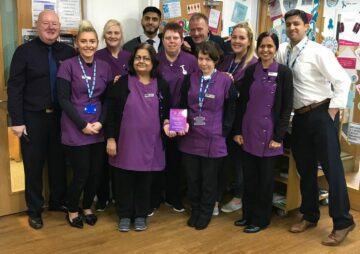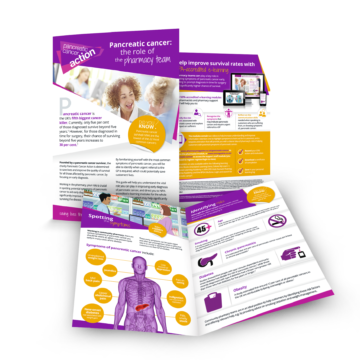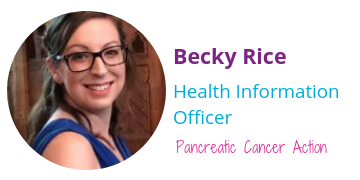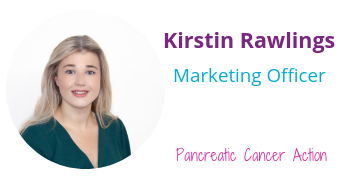Would you feel comfortable talking to your pharmacist?
New research from UCL School of Pharmacy revealed amongst 25-34 year olds, 51% would feel comfortable talking to their community pharmacist when experiencing symptoms of cancer, “if IT systems could enhance their case finding and clinical judgements.”
In the report, British Public Attitudes towards Cancer Research and Treatment in 2019, a detailed study was carried out which surveyed over 2,000 members of the British public and found that people would be happy discussing their cancer symptoms with their pharmacist. Furthermore, many people surveyed would be willing to have simple tests at their pharmacy to help diagnose cancer early. 82% reported they would still want these tests even if they could result in a false alarm.
What does this mean?
This research shows that pharmacies could play more of a role in the early diagnosis of pancreatic cancer, or any cancer.
When patients go to their community pharmacy with a symptom, they have an opportunity to discuss their health concerns in a comfortable setting, no matter how minor the concern may be. If pharmacies had the same access as GPs to any new technology or simple diagnostic tests, that may be able to help diagnose cancer earlier, or give patients piece of mind that their symptoms are not cancer.
Our work with pharmacy teams
 We believe pharmacy teams are at the forefront of the community. This is also recognised by the government, whom recently published the new Prevention Green Paper which states: ” We are committed to delivering an expanded role for community pharmacies and want to see them become the first port of call for minor illness and health advice in England.”
We believe pharmacy teams are at the forefront of the community. This is also recognised by the government, whom recently published the new Prevention Green Paper which states: ” We are committed to delivering an expanded role for community pharmacies and want to see them become the first port of call for minor illness and health advice in England.”
Pharmacists can often be a patients first port of call when suffering from early signs and symptoms of pancreatic cancer, for example many patients suffer with indigestion prior to diagnosis and seek over the counter medicine to help.
Some symptoms can also be difficult for people to talk about (for example, a change in bowel habit), and it is important that people can discuss these concerns with a medical professional.
The average waiting time to see a pharmacist is 8 minutes* – and in many cases considerably less – and there is no other part of the NHS where this is the case.
Pharmacists are trained experts in medicine who are more than capable and happy to discuss any health concerns.
 This year, we have taken action in Northern Ireland by providing free healthcare resource packs to over 538 pharmacies with useful information on pancreatic cancer as well as providing an online and printed e-learning module for pharmacists and their teams to complete. (If you would like to order a free healthcare pack for your local pharmacy or GP, click here)
This year, we have taken action in Northern Ireland by providing free healthcare resource packs to over 538 pharmacies with useful information on pancreatic cancer as well as providing an online and printed e-learning module for pharmacists and their teams to complete. (If you would like to order a free healthcare pack for your local pharmacy or GP, click here)
We have also updated the healthcare professional section of our website which provides free online information for medical professionals including pharmacies to help aid early diagnosis.
We recognise the importance of pharmacies, especially when patients struggle to make GP appointments and we believe pharmacies play an important role in aiding early diagnosis and encourage everyone to ‘think pharmacy’ when they have a healthcare concern.
To find out more about our work in Northern Ireland- click here.
*Steve Double- MP All Party Pharmacy Group

